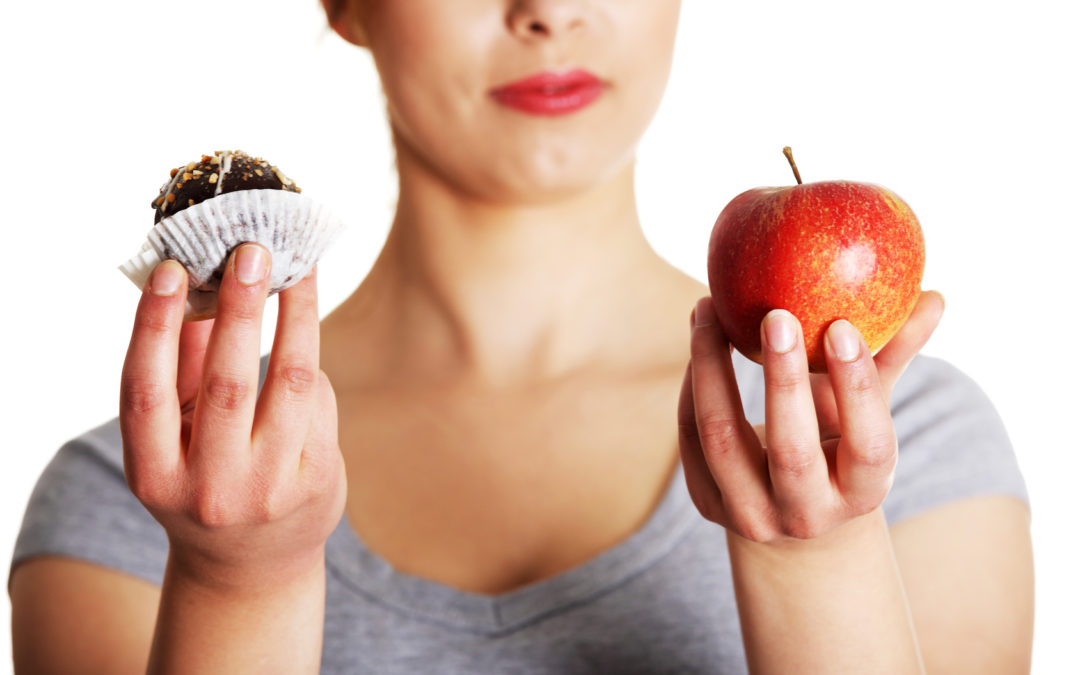Have you ever found yourself impulsively reaching for something you know isn’t good for you?
You are not alone. Most people to varying degrees get cravings. Yes, even health coaches, doctors, and athletes get them. Some people feel like their cravings can really get out of control. Often it’s because their energy is low or are feeling dull or anxious.
Cravings are really just messages from the body.
When you get a craving, your body is attempting to tell you something. Listen. Take a deep breath. Chances are, it’s not really telling you ‘eat junk’. Take this opportunity to pause and consider what’s really going on.
There are many reasons we get cravings.
Here are some of the most common ones—
Low energy. Notice what time of the day you tend to get cravings. People often experience a sluggish period between lunch and dinner and go searching for ‘pick-me-up’ foods to get their energy back up.
Stress, depression, and feeling overwhelmed. Too often our desire for certain foods can be dictated by our emotional state. A hard day at the office. An argument with a spouse or loved one. Sometimes the whole world just seems like it’s falling apart and we feel desperate to make ourselves feel better. Consider that it may not really be food that you’re after. Cravings of love, affection, and security can easily be disguised as food cravings trying to dissipate our physical tension, lift up our mood, or boost our energy.
Food allergies. People are often most addicted to (or crave) foods that they are actually allergic to. Withdrawal from allergens can actually cause reactions. Dairy and gluten are two of the biggest allergen foods. Take grains for instance, they can be very addicting foods that people crave. Unfortunately our body can only partially digest some grains. The partially undigested proteins (peptides) have morphine-like properties and enter the blood stream causing pleasant feelings. Withdrawal from them can cause brief unpleasant experiences such as irritability, discomfort, and flulike achy symptoms. Consuming these allergen foods immediately ceases the discomfort but perpetuates the allergy-addiction cycle.
Hungry for nutrition. When the body’s vitamin, mineral, and enzyme requirements are not met, bizarre cravings can appear. For example, cravings for salty foods such as potato chips can indicate a mineral deficiency. Cravings for sweets can also indicated the body’s need for increased vegetable consumption.
Vicious cycles. We’ve all had a day like this at some point in our life: Go to bed late, have a terrible nights sleep, and wake up with low energy. We drink coffee (or other caffeine) to give us quick energy and boost our mind power. As the day drags on we might reach for chocolate, soda, or other sweet treats to keep us going. After feeling weak and malnourished by dinner we eat heavy meats, creams, pastas, breads, and indulge with alcohol to dissolve our stress and comfort us. Then we feel heavy and depleted of energy again so we reach for dessert (more sweet energy foods to pick us back up). Suddenly our batteries are re-charged and we stay up later than ideal or experience night waking and the whole cycle is repeated again the next day.
As you can see, it’s not your fault you experience cravings. You’re supposed to! And it’s not your fault that your willpower isn’t strong enough to put mind over matter. Nature always wins. That little voice in the back of your brain sending you messages is actually smarter than you think it is.
Forget about relying on ‘willpower’ to win the war on cravings.
It doesn’t stand a chance against our human instinct.
Instead of blaming and shaming yourself for not sticking to your ‘diet’, trust yourself. There’s nothing wrong with you. Your inner self is just trying to help by sending you a message.
Your body is always doing what it knows is best to protect and nourish you. Cravings are merely the body’s attempt at keeping everything thing in balance. When you experience cravings it’s just your body telling you it needs something. All you need to do is figure out to decode the message. To win the game of cravings, put on your detective hat and start paying attention to when, where, and with whom is the craving happening. Take notes. Ask yourself questions to determine the cause so you can make intelligent responses to your cravings.
So the next time you get a craving —

